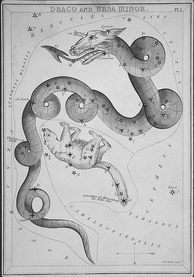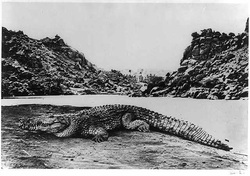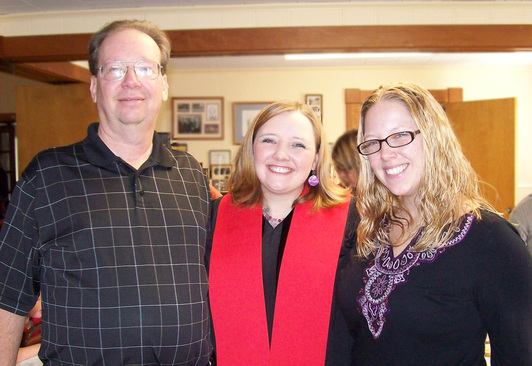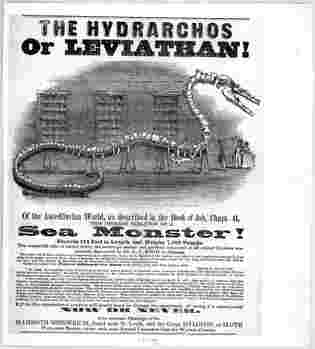|
Genesis 22:1-14 CEB After these events, God tested Abraham and said to him, “Abraham!” Abraham answered, “I’m here.” God said, “Take your son, your only son whom you love, Isaac, and go to the land of Moriah. Offer him up as an entirely burned offering there on one of the mountains that I will show you.” Abraham got up early in the morning, harnessed his donkey, and took two of his young men with him, together with his son Isaac. He split the wood for the entirely burned offering, set out, and went to the place God had described to him. On the third day, Abraham looked up and saw the place at a distance. Abraham said to his servants, “Stay here with the donkey. The boy and I will walk up there, worship, and then come back to you.” Abraham took the wood for the entirely burned offering and laid it on his son Isaac. He took the fire and the knife in his hand, and the two of them walked on together. Isaac said to his father Abraham, “My father?” Abraham said, “I’m here, my son.” Isaac said, “Here is the fire and the wood, but where is the lamb for the entirely burned offering?” Abraham said, “The lamb for the entirely burned offering? God will see to it, my son.” The two of them walked on together. They arrived at the place God had described to him. Abraham built an altar there and arranged the wood on it. He tied up his son Isaac and laid him on the altar on top of the wood. Then Abraham stretched out his hand and took the knife to kill his son as a sacrifice. But the Lord’s messenger called out to Abraham from heaven, “Abraham? Abraham?” Abraham said, “I’m here.” The messenger said, “Don’t stretch out your hand against the young man, and don’t do anything to him. I now know that you revere God and didn’t hold back your son, your only son, from me.” Abraham looked up and saw a single ram caught by its horns in the dense underbrush. Abraham went over, took the ram, and offered it as an entirely burned offering instead of his son. Abraham named that place “the Lord sees.” That is the reason people today say, “On this mountain the Lord is seen.  Abraham fully and completely trusts God's promise: This scripture, at face value is horrific. It is even more so when one realizes child sacrifice was not practiced by the Israelites. (Not that sanctioned child sacrifice should make us feel better about the scripture.) It is difficult to find the redemption in this text. Then there is a single line in scripture that opens my heart: "Stay here with the donkey; the boy and I will go over there; we will worship, and then we will come back to you." God made a promise to Abraham, rich as the sands of the wilderness; bright as the starts in the night sky. Abraham would be the father of a great nation. Now, with Ishmael gone, his entire blood line rests in the boy, Isaac. Abraham knows what God has asked from him, but he trusts in God's promise so completely, he doesn't question it. He knows Isaac is coming back with him, even if he doesn't yet know how.  There is a strong possibility Abraham saw Isaac as a tool rather than a son: Would it surprise you, if you discovered, the first time the bible has Abraham talking directly to his son is on their way to sacrifice him? Oh, there is plenty of talking about the son, but no talking to him. Then, on their way to Isaac's final destination, the son asks, "My father?" The bible finally has Abraham speaking to Isaac, "I'm here, my son." I don't want to take this line lightly. 'Here I am,' or 'I'm here,' as CEB puts it, is a phrase Abraham uses with God. It's an open statement filled with possibility. When I read Abraham's response, I see a father who has finally found connection with God and with family.  There is also a strong possibility God wants to help Abraham see his son as precious: The best way to ruin a cake is mess with the basic ingredients. Too much flour can dry a cake out. Too much liquid or sugar can make it too dense. Yes, most of the process happens in the oven, but the first steps of mixing the ingredients makes all the difference for a good cake. We need to remember, this is the beginning of a people. How Abraham chooses to treat his son will impact how the chosen family unit will work for the generations to come. God's covenant to make Abraham the seed for a great nation, was made with the stipulation, you will be the father. Up until Abraham's response to Isaac, he had a perfect relationship with God. His communication and trust were perfect. I question whether he had enough of a relationship with his son. When God raises the stakes, Abraham is finally able to see his own son as beloved and precious. I see this as the tension between the physical and the spiritual. There is more purpose to physical reality, than sitting it out until heaven. Being part of God's call should be a bit messy. While it should feel good at times, there should also be times it hurts. If we are really working for God, our hands are going to get a little dirty. (No one plants a garden without needing to clean up afterwards.) We must be prepared to say the words, "Here I am." We must be prepared to say those words to God, as well as those around us. We must be prepared to the stark openness those words bring. "Here I am." If you like what you are reading there are many ways to connect:
And as always, contributions are greatly appreciated. Genesis 21:8-21 CEB 8 The boy grew and stopped nursing. On the day he stopped nursing, Abraham prepared a huge banquet. 9 Sarah saw Hagar’s son laughing, the one Hagar the Egyptian had borne to Abraham. 10 So she said to Abraham, “Send this servant away with her son! This servant’s son won’t share the inheritance with my son Isaac.” 11 This upset Abraham terribly because the boy was his son. 12 God said to Abraham, “Don’t be upset about the boy and your servant. Do everything Sarah tells you to do because your descendants will be traced through Isaac. 13 But I will make of your servant’s son a great nation too, because he is also your descendant.” 14 Abraham got up early in the morning, took some bread and a flask of water, and gave it to Hagar. He put the boy in her shoulder sling and sent her away. She left and wandered through the desert near Beer-sheba. 15 Finally the water in the flask ran out, and she put the boy down under one of the desert shrubs. 16 She walked away from him about as far as a bow shot and sat down, telling herself, I can’t bear to see the boy die. She sat at a distance, cried out in grief, and wept. 17 God heard the boy’s cries, and God’s messenger called to Hagar from heaven and said to her, “Hagar! What’s wrong? Don’t be afraid. God has heard the boy’s cries over there. 18 Get up, pick up the boy, and take him by the hand because I will make of him a great nation.” 19 Then God opened her eyes, and she saw a well. She went over, filled the water flask, and gave the boy a drink. 20 God remained with the boy; he grew up, lived in the desert, and became an expert archer. 21 He lived in the Paran desert, and his mother found him an Egyptian wife. Hello, my name is Melissa, and I am female. Whew! That felt good. I'm glad I got that off my chest. I felt the need to start with announcing my gender, because I'm about to jump head first into the deep end of gender equality. I have to say, I'm not comfortable bringing this subject up, yet again. I really believed it would be a topic I would ignore, the obviousness of it all being that I am a female in ministry. The fact that I keep coming back to gender topics. There are also a few sharks living in this water I'm about to dive into. I'm not fond of getting bit. These sharks are:
OK, I just put all my cards on the table. I'm holding nothing up my sleeve. I come vulnerable and ready to discuss this topic. In our scripture, Hagar suffers from something not on the above list of sharks: Females can be a female's worst enemy. The domino that started the whole line falling, leading to Hagar and her son being exiled to the wilderness, was Sarah. She had the issue with Hagar being the mother of the first born son of Abraham. Sarah tells Abraham to exile her and her son. She didn't want Ishmael to get any of the inheritance. Reading scriptures like this week's, cause me to weep for both Hagar and Sarah. Females today will throw other females into the metaphorical wilderness. This all happens in moments where we could be the best cheerleaders. At times where we could raise another up, we push and cut down. I want to speculate as to why we do this, and what we could do in the future:  We see images like this, and begin to see female positions of power as a scarce commodity. This picture is the entire weekday line-up on the Blaze Radio network. To be fair, I'm sure it's difficult to find strong female voices for a radio show. It has typically been a male's field. The Blaze also added S.E. Cupp to their weekend line-up, so there is a female. They also have a couple on their television network. Yet, this image still disheartens me. Whether it is true or not, it makes me feel like there is no space for a female voice; female leadership. I feel the good-'ol-boys club still exist, and space is limited for female membership. This mindset would set me up to see the scarcity of the situation, not the abundance. I think, the solution to this is generosity. What we have isn't the outcome of limited positions females can fill. What we have is from the ability we have to do the job. We have the potential to achieve greatness. All of us. This is why I tend to be overly generous in praise. If someone does something brilliant, male of female, I believe in abundant love. Abundant love means there is more than enough of God's grace to go around.  We have lower expectations for males than we do females. Another way to put it, women hold exceptionally high standards on their own. When I was in middle school I saw a female in the pulpit for the first time. My entire view of female ministers rested on this one woman's performance that Sunday morning. It was unfair to place so much on one person. Years later, at my first church job, I would see a male minister using the rainbow from Noah's Ark as a weak pretense to sing "Somewhere over the Rainbow." It was an absolutely horrible sermon. Seriously, I only learned rainbows were pretty. Yet, I didn't leave thinking all men should avoid preaching. I also didn't think his bad preaching was cause for him to be fired. My expectations of him were lower than what I naturally expect of any female. I think we know what's on the line when we see a female taking a position we know has been primarily male dominated. We know what is going to be said if she messes up even a little, "Well, we tried a female and it just didn't work." I've heard it before. When I worked in Kentucky I was the second female minister to be hired by this particular congregation. A female congregant told me she wasn't coming to church, "We already had a female minister and it didn't work. We tried it, and it failed. I'm not coming for another one." See? All that pressure put on one person, to signify an entire gender. We, females, know what's at stake and we only want the best in the lime light. I think the solution is to set equal standards on males and females. We need to expect more than Clark Kent from the males, and less of Super Woman from the females. This isn't saying the person working, male or female, shouldn't give 110% to everything they do. This is saying the people should look equally on our leaders for their character and performance, not their gender. This is easier said than done. It is often what we don't realize we are doing that causes the most harm. What would I like you to do with this? As females, we know when we have been pushed into the wilderness. It is easier to recall when we have been slighted, than when we have slighted. Sometimes we don't even know when we have cut others down out of fear or unreasonable expectations. If you are up to it, I want us to meditate on the times we have been Sarah. I want us to think about times we were the one disconnecting someone. Then, I want us to pray for forgiveness. Follow it up by finding someone to be a cheerleader to. Abundantly love. If you like what you are reading there are many ways to connect:
And as always, contributions are greatly appreciated. I’m scared. A lot. Right now, even as I’m writing in the cool of the summer morning with the birds singing and the sun shining down on me and my Macbook I am fearful. It’s not just fear of one thing (although if a snake showed up in front of my, I guarantee that all my fear would be focused on that creature). No, it’s fear of many different things. Some of my fears are rational, like the fear of the snake, and other fears are not so rational, like the fear of driving inside the Atlanta perimeter (wait---maybe that’s rational) or stage fright. I have a long history of stage fright. I can remember the first time I sang loudly around some people at church who also sang. I remember thinking they’d be excited that I could sing what they were singing. They weren’t. The disapproval was palpable. It was clear that I’d overstepped some invisible singing boundary even if I didn’t know what it was. The experience terrified me. I thought they hated my voice. High school choir and drama helped me a bit. I learned to sing with a group and that people liked my voice and wanted to hear me sing. In spite of this, I still struggled with my fear. While I can sing with a group with no fear, singing alone turns me into a scared little girl again, and my lovely mezzo-soprano voice turns into a nasty falsetto, I forget lyrics, or totally miss musical cues.  Recently, I was listening to TedRadio on NPR, and the entire episode (“What We Fear”) was dedicated to the exploration of fear and how various speakers faced their fear. Joe Kowan’s talk stuck with me the most. He has stage fright too, which is kind of funny when you consider that he spends his evenings as a folk singer. He describes his fear manifesting in the same ways mine do—pitch of the voice goes up, audience gets uncomfortable because he’s uncomfortable, and then he forgets words and it’s just a horrible experience. Kowan did not stop singing, however. He made himself go to open mic experiences every week, and wrote a song about his stage fright (you can hear it on the broadcast). When he’s scared, he sings the song. He now makes records and is well known on the folk circuit. He overcame his fear by embracing his fear. By now, you’re probably wondering how all this connects to the whole “perfected in love” thing from my chosen scripture. Anytime I hear or read the word “perfect” or “perfected,” especially in scripture, all that fear we just discussed rises through me. According to David Reagan (www.learnthebible.org), “the concept of perfection is greater than can be given in any of the words that are used as substitutes in other English versions of the Bible.” He goes on to observe that “perfection includes the idea of completion, but it includes much more as well.” Our modern usage of the word can be very constricting because it seems to lean more to an idea of correctness, as in “You did that perfectly.” In that context, this scripture is daunting. How can I be “perfected in love?” I can’t even be perfect in my general activities. My fear amplifies that imperfection in my mind. Last night, I went to a local karaoke show hosted by a dear friend of mine. Thomas has been trying to get me to sing at his show for a while. My ancient fear rose up from my gut every time he asked. I could hear my falsetto lurking in the back of my mind waiting to pounce. He had two of our friends, Jeff and Alan, help him to push me. Alan offered to do a duet with me. I’m pretty sure that none of them really thought I’d follow through. I wasn’t sure if I would either. I was not perfected in love, obviously. I was scared. Then, I got mad at myself. How many times had I held myself back because of this irrational fear? How many times had people told me I had a nice voice? My friends were pushing me to open my mouth and sing. I agreed to sing with Alan. Now I was hung. If I didn’t follow through, I’d be angry with myself and my friends would continue to push at me. If I did follow through, I’d be singing into a microphone that would bounce my voice and all my mistakes around for the entire audience to hear. In an act of defiance against my fear, I downloaded the song we chose as well as a lyric app, and took them on vacation with me. I practiced everyday I was at the beach, learning the notes and lyrics, feeling the story, owning the song. Fear grumbled in the back of my head, but I sang louder. It felt good.  While I was in South Fort Walton Beach, I went to a bar called Redd’s Pumping Station. The owner of the bar is named (no surprise) Redd, and she is also the bartender. The special part about her bar isn’t her drinks (she makes a mean mojito) or the setting (it’s actually a functional gas station). What makes Redd’s so special is that Redd sings. While she muddled my mojito, she sang. While she served and spoke to each table, she also performed. She told us that this was her dream, and she was living it. Her joy warmed that tiny bar that night, and I’m sure it warmed it every night. She encouraged us to sing with her, and some of us (me included) sang. She also taught me something about my own singing. If you sing with joy and embrace that joy, then that is as close to perfection as you get. Redd loves what she does. That love is what allows her to live her dream. I sang with Alan last night. I got in front of that microphone, shaking, but I opened my mouth. My voiced bounced off the walls. I don’t remember if people clapped or not. I do know that my friends all said I was great, even when I stumbled briefly. I know I made mistakes. It didn’t matter. I sang with joy. I loved the song. I faced my fear and it could no longer punish me. In that four-minute period, I was perfected in as much love as could be mustered by the universe. “Perfected in love” shouldn’t be focused on the “perfect,” the absolutely correct. Love should be the focus. Fear locks you up. The expectation of perfection locks you up. Embracing love, embracing joy opens doors to places you didn’t think you could go.  Dear Father/Mother/Spirit: Thank you for those moments when we tear away our desire to be perfect and focus on the beauty of a moment. Help us learn to embrace joy and face those things that scare us. Amen Jessica Nettles is a writer, an English instructor at Chattahoochee Technical College in Marietta, Georgia, and a burgeoning karaoke singer. She earned a B.A. in English and an M.A. in Professional Writing at Kennesaw State University. Her journey as a follower of Christ is ongoing. Her children are both adults, and she is having all sorts of new adventures that she couldn't have when her kids were young. She currently resides in a small 60s ranch style house in Cobb County, Georgia, and hopes to one day have a sponsor so that she can spend her days as a writer and possible karaoke singing beach bum.She's sure God laughs about this hope daily. If you like what Jessica has to say, you can follow her on Tumblr. If you like what you are reading there are many ways to connect:
And as always, contributions are greatly appreciated. Psalm 104:24-34 CEB 24 Lord, you have done so many things! You made them all so wisely! The earth is full of your creations! 25 And then there’s the sea, wide and deep, with its countless creatures-- living things both small and large. 26 There go the ships on it, and Leviathan, which you made, plays in it! 27 All your creations wait for you to give them their food on time. 28 When you give it to them, they gather it up; when you open your hand, they are filled completely full! 29 But when you hide your face, they are terrified; when you take away their breath, they die and return to dust. 30 When you let loose your breath, they are created, and you make the surface of the ground brand-new again. 31 Let the Lord’s glory last forever! Let the Lord rejoice in all he has made! 32 He has only to look at the earth, and it shakes. God just touches the mountains, and they erupt in smoke. 33 I will sing to the Lord as long as I live; I will sing praises to my God while I’m still alive. 34 Let my praise be pleasing to him; I’m rejoicing in the Lord! Perhaps you thought I would be talking about Pentecost today. I know, I'm kinda surprised myself. I will post some great Pentecost blogs/meditations/articles throughout the week. For some reason, I'm really called to talk today about Leviathan. I think the call happened last week. Someone suggested when Leviathan was mentioned in Job 3 and 41, it was Job and God talking about dinosaurs. When I read it, I knew exactly where he was coming from. He is a Young Earth Creationist (YEC). Leviathan and Behemoth, in YEC, are dinosaurs. Dinosaurs, in YEC, are really dragons. If you want to go down that rabbit hole, there is a great blog with great links here. My theology is not young Earth based. I am also not an old Earth creationist, but I tend to believe Old Earth Creationists more than Young Earth Creationists. I don't want to debate creation. More than that, you don't want me to debate creation. Anyway, Bill Nye and Ken Ham already had that argument, so we can move on for now. What I want to do is quickly explain the history of Leviathan. It comes up in lectionary this week, so I have a weak excuse to do it.  Mythological Leviathan: In mythology, the Canaanites believed Baal (Yes, the same Baal with Elijah, the mountain, the water and fire and what not.) fought Leviathan, and Baal won. Also called Lotan, this twisting serpent had to be defeated in order to hold stability over creation. In Christian text, outside of the bible, it is the Arch-Angel Michael who eventually slays Leviathan. There are multiple stained glass windows, icons, and other works of art depicting the death. The picture chosen for this piece is constellation of Draco. (Only related in both Leviathan and Draco being dragons.)  Spiritual Leviathan: There are a few places Leviathan show up in scripture, and how we should feel about the character is different depending on the scripture we choose to read. In Job: 3:8= Job, in his utter anguish, seeks Leviathan to just completely destroy creation. (Don't take it too seriously. Many of us say things we don't mean when we are dealing with loss.) 26:12-13= Job tells his friends about God piercing the fleeing serpent. This is reference to Leviathan, made in Isaiah. 41:1-34= I personally love God's speech to Job at the end of the book. There are some beautiful moments of imagery. When God speaks of the Leviathan, the speech speaks of Leviathan's terror, and God's control. I have always translated the speech to be God explaining the world, even the scary world, is loved by God. In two Psalms: Psalm 74:13-14= God's power destroyed Leviathan. A task humans are not able to do on our own. Psalm 104:26= This is just a moment were we can see a monster/dragon playing. Because this is the lectionary text, let me expand just a little. Leviathan is a monster born of chaos. Chaos existed at the beginning of creation, in the water. (If you read Genesis1:1-2, a literal representation shows water existed before creation. Therefore, as God ordered the chaos, the chaos still existed in water.) Leviathan is a creature of pre-order, or of chaos. By the way, I am not a literalist. Isaiah: 27:1= Here, Leviathan is seen as a twisting serpent, and dragon. God kills Leviathan with a strong sword. It is symbolic of the wicked being destroyed, so Israel can be redeemed. Very loosely in Revelation: (Rev 12:3, 9; 13:1; 17:3) In Canaanite mythology Leviathan was described as a seven-headed sea serpent. Revelation describes Christ battling a seven-headed dragon. This dragon is really Satan, the accuser.  Natural Leviathan: William Kethe, who wrote an interpretation of Psalm 104, called the Leviathan a whale. This is also what Henry Vaughan did in his version. Some believe Leviathan and Behemoth were real. Much like there are those who believe Sea Cows were mistaken as mermaids, there are some who believe Behemoth is actually a hippo, and Leviathan a crocodile. Resources for future reference: Smyth & Helwys Bible Commentary: Job Harper Collin's Bible Dictionary Interpretation (A Bible Commentary for Teaching and Preaching): Job The Psalms in English If you like what you are reading there are many ways to connect:
And as always, contributions are greatly appreciated. |
Categories
All
Archives
October 2023
|







 RSS Feed
RSS Feed